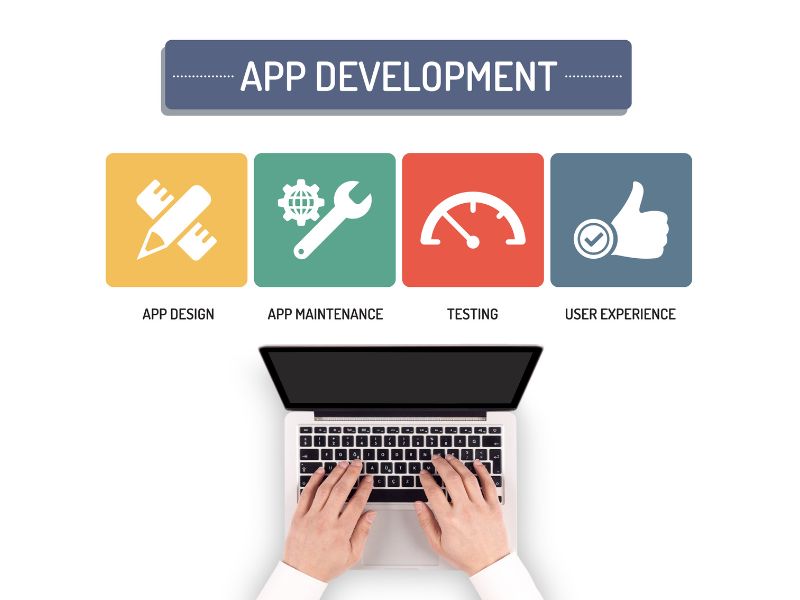—-
Web App vs Mobile App: What’s the Difference?
~
Web App vs Mobile App. The primary difference between them lies in how they are accessed and used. Web apps are accessed via web browsers, work on various devices, and require an internet connection. On the other hand, mobile apps are installed on mobile devices, can work offline, and are platform-specific, requiring downloads from app stores.
What is a Web App?
- Access via Web Browser: A web app, short for “web application,” is accessed through a web browser like Google Chrome, Mozilla Firefox, or Safari.
- Platform Independent: It’s platform-independent, meaning it can be used on any device with a web browser, such as a computer, tablet, or smartphone.
- Internet Connection Required: Web apps require an internet connection because they are hosted on remote servers. They can’t be used offline.
- Installation Not Needed: Users don’t need to download or install anything on their devices to use a web app. They visit a website.
- Updates are Automatic: Any updates or changes to the web app are automatically reflected when users visit the website. No manual updates are required.
- Development is Cross-Platform: Web apps are typically easier and more cost-effective since they work across different platforms with a single codebase.
What is a Mobile App?
- Installed on a Device: A mobile app is a software application designed to be downloaded and installed on a mobile device, such as a smartphone or tablet.
- Platform Specific: Mobile apps are platform-specific, meaning there are different versions for iOS (Apple) and Android devices, requiring separate development.
- Can Work Offline: Some mobile apps can function without an internet connection, depending on their design and functionality. They store data on the device.
- Downloaded from App Stores: Users need to visit app stores (e.g., Apple App Store or Google Play Store) to download and install mobile apps on their devices.
- Manual Updates: Users must manually update mobile apps when new versions are released through the app store. Automatic updates are also an option.
Development Requires Multiple Versions: Developing mobile apps for both iOS and Android may require creating and maintaining two separate codebases.
Web App vs Mobile App: What’s Best?
Whether a web or mobile app is better depends on your business needs and goals. Here’s a straightforward comparison to help you understand the Pro’s & Con’s
Web App: Advantages:
- Cross-Platform Accessibility: Web apps are accessible on various devices with web browsers, making them versatile for a broader audience.
- Easier Updates: Updates are seamless since users see the latest version when they access the website.
- Lower Development Costs: Developing the web app can be more cost-effective, especially if you want to reach desktop and mobile users.
Considerations:
- Internet Dependency: Users need an internet connection to access web apps, which may be a drawback if offline access is critical.
- Limited Device Integration: Integration with device-specific features (like cameras or GPS) may be limited compared to mobile apps.
Mobile App: Advantages:
- Optimised for Mobile: Mobile apps are designed specifically for smartphones and tablets, offering a more tailored user experience.
- Offline Functionality: Some mobile apps can work without an internet connection, which is helpful for specific use cases.
- Access to Device Features: Mobile apps can leverage device features like GPS, camera, and notifications for enhanced functionality.
Considerations:
- Platform-Specific: You’ll need separate versions for iOS and Android, potentially increasing development and maintenance costs.
- App Store Approval: Mobile apps must go through app store approval processes, which can introduce delays.
Which App is Best for Your Business?
Choose a Web App If:
- You want a cost-effective solution accessible on various devices – Computers, Tablets, or Smartphones.
- Frequent updates are necessary, and you prefer a hassle-free update process.
- Your target audience values convenience and accessibility over device-specific features.
Choose a Mobile App If:
- You need to provide a highly customised experience optimised for mobile devices.
- Offline functionality is crucial for your app’s usability.
- Leveraging device-specific features is central to your app’s functionality.
In answer to the Web App vs Mobile App question, the “best” choice ultimately depends on your business objectives, target audience, and the specific features and functionality your app requires.
In many cases, combining web and mobile apps (a hybrid approach) might be the ideal solution to reach a broader audience while offering specialised mobile experiences when needed.




